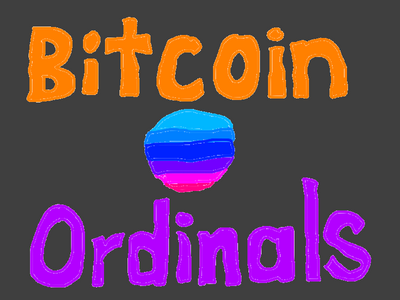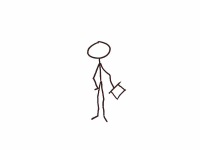The rise of Bitcoin ordinals is causing something of a crypto-controversy. It's a good versus evil conundrum: are these Bitcoin NFTs good or bad? The simple arguments as I see them and my thoughts...

Ordinals are bad
Ordinals clog the Bitcoin chain. They drive up fees to interact with the chain. Consequently, they make Bitcoin unusable to most people. Clearly, this is a bad thing.
Most of these ordinals are silly images or pointless BRC-20 tokens. In this way, ordinals are against Satoshi Nakamoto's original vision of Bitcoin as a "Peer-to-Peer Electronic Cash System" (page 10). They even may kill the Lightning Network (LN). The LN is the current remedy for high transaction fees and to enable smaller "cup of coffee" size payments. See thoughts on this at
Ordinals are good
Ordinals have ramped up interest in Bitcoin. Users understandably dislike the fees, but miners benefit from those fees. This is drawing in more miners and thus strengthening the chain's security. Also, ordinals have given Bitcoin an entirely new use case. Every use case is beneficial and there seems to be little doubt that these ordinal NFT inscriptions have rejuvenated interest. In fact, rather than shunning on-chain usage, they may actually be spurring users to interact with the blockchain more and more. More users and more usage is a good thing.
My leanings
I come down on the side of, "Ordinals are good."
Regarding the problems of clog and fees, I feel we should look at these as opportunities. Yes, there is a problem now. However, I think it's unwise to underestimate the ingenuity of human creativity and inventiveness. Time and again throughout history, when faced with problems, mankind has devised novel solutions to problems. This has been especially true when these solutions are incentivized.
Bitcoin offers a fantastic example of both innovation to solve problems and incentives make the solution work.
Bitcoin was created out of frustration with the problems created by the faulty economics of centralized entities and bailouts. Problems led to innovation. The incentives for mining (and collecting fees) initiated the genesis and growth of Bitcoin, and still drive it today. In fact, Satoshi himself foresaw the day when "the incentive can transition entirely to transaction fees" (page 13). Another halving event is coming in about a year (estimated for April 2024). Perhaps, at a faster rate than expected, we are nearing Satoshi's foreseen days of Bitcoin being incentivized by fees alone.
How these present problems of congestion and fees will be solved is unclear at this time, but that is my whole point here. We should not allow our muddied foresight and current lack of creativity to entice us into the conclusion, "Nothing can ever be done about this problem. Ban ordinals."
In economics there is something called "the broken window fallacy". It states that fixing a broken window ultimately does not make people better off, because they would rather have used those resources for something else which would have been preferred.
But, there is deeper way to view the broken window fallacy. It's what is referred to as the "seen and unseen" in economic circles. We see the broken window, the repair, the payment to to workman, and the workman's consequent spending of his earnings. We do not see what would have happened if the window had not been broken in the first place. That reality...the purchases and payments that would have happened if the window was unbroken...remains a mystery. Unseen.
I especially like that a broken window is used in this analogy, as opposed to anything else broken and requiring repair. When a window is broken, it is sometimes temporarily boarded up with plywood until the glass can be obtained and worker is on site. During the wait, that wooden covering halts our vision. We are unable to see through the window and to the outside world beyond. We are constrained by only what we can see in the here and now. What's beyond is unknown, unseen.
With Bitcoin, simply because we cannot see a solution currently to the clog and fees, doesn't mean there is not one out there. It doesn't mean there is no solution standing outside the window of our mind's sight, waiting to be unveiled.
That's what Satoshi did October 31, 2008 with the whitepaper.
Problems and innovation, combined with incentives, are very powerful things.

Not on Hive yet? Watch the animation I made: The Hive Story Animation and you'll learn all about it. The top benefits of the Hive blockchain: (1) no ONE person/group runs it, (2) YOU own and control your content, and (3) YOU earn the rewards that your content generates. Learn more or consider using my referral link to get your free account here and I'll support you as you begin. Alternately, you can see other sign-up options here.
